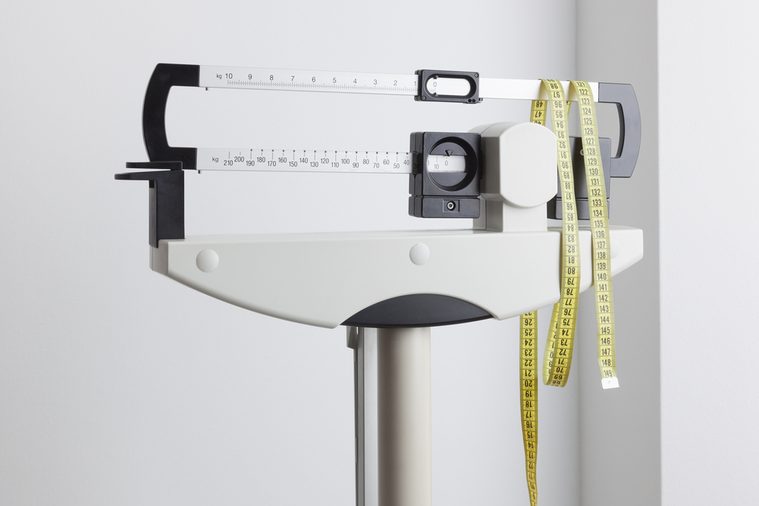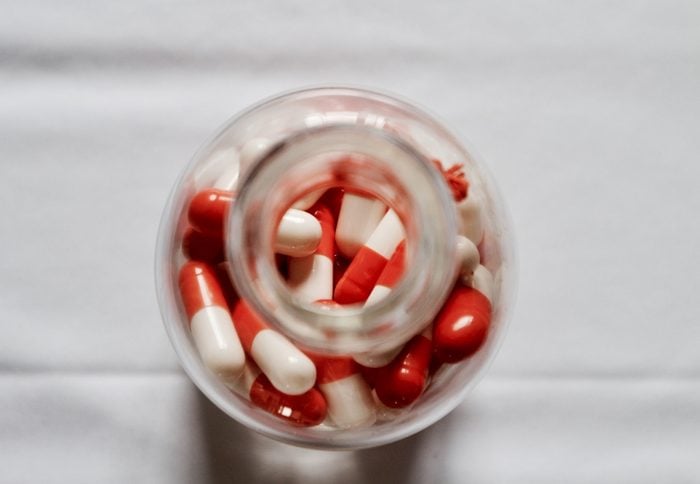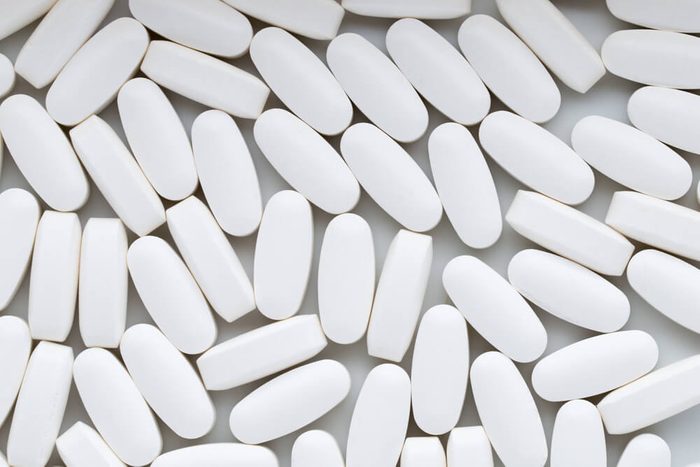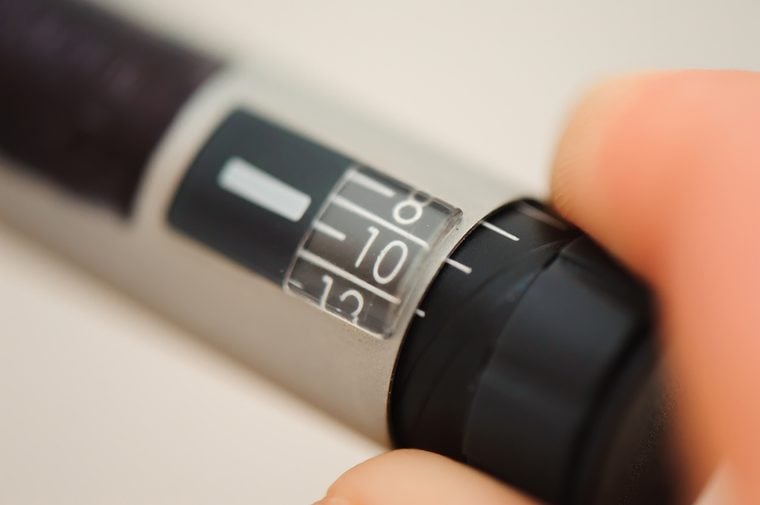
Every belly is beautiful
Eating a healthy diet and maintaining a regular exercise routine aren’t the only things that affect your body and physique. In fact, there are many reasons why your stomach, in particular, may not be “flat.” Everything from genetics to various medications could have an impact. Keep in mind that the way your body looks does not necessarily reflect your health or wellbeing—having a flat stomach doesn’t necessarily mean that someone is “healthier.” It’s good to keep in mind a few of the reasons why bellies aren’t totally flat and the reasons why some people may especially have bloating or hold weight in that area.

Your genetics prefer storing fat in your stomach area
Although your genes don’t automatically doom you to a large belly, they do play a significant role in fat distribution and storage, according to bariatric surgeon Michael Nusbaum, MD, founder of Nusbaum Medical Centers in New Jersey. Visceral fat—the type of fat the body stores in your abdomen and around your intestines and is mostly responsible for keeping people from a flat belly—can be partly determined by genetics. “There are people who, no matter what, are going to basically be prone to having the same belly as their mom or dad,” Dr. Nusbaum says.

You have food allergies or food sensitivities
Genetics also play a role in food allergies and food sensitivities, according to Dr. Nusbaum. These food issues could also be to blame for excess belly fat and bloat. For example, he says, “if you are African American and your genetics are purely from sub-Saharan Africa, where [your ancestors] didn’t have corn, and you love your sodas and are drinking tons of high-fructose corn syrup, you’re going to store that away as fat because your body can’t metabolize it preferentially.” Not all food allergies result in hives or breakouts; some trigger things like inflammation and abdominal distention, or expansion of the stomach and waist, making the belly less flat. Other common examples are celiac disease and gluten sensitivity.

Your gut microbiome is off-balance
If your gut microbiome is off-balance, you’ll end up with gas, bloating, and a not-so-flat stomach, Dr. Nusbaum says. And Miami-based internist Pamela Merino, MD, adds that more research is needed to see how gut health specifically affects fat storage. Dr. Merino points to research published in the Yale Journal of Biology and Medicine in 2016, which shows that stool transplants from thin people to overweight people result in weight loss—and the only explanation is that thin people’s microbiomes are better at burning fat. Gut bacteria may also have an impact on how the body digests different foods and nutrients, as well as influence whether you feel hungry or full, which can affect your weight. Think about adjusting your diet to include these 15 foods proven to flatten your belly.

Your hormones are out of whack
Women might gain weight during menopause, especially around the abdomen, because of changing hormone levels, according to Eldred Taylor, MD, an obstetrician-gynecologist based in Atlanta. After menopause, fat tissue produces estrogen, and estrogen causes fat storage, creating a vicious cycle, Dr. Taylor says. Different factors can cause hormonal imbalances like this, leading to weight gain. Stress is a common one. “Stress blocks ovulation, and when women stop ovulating, they don’t make progesterone,” Dr. Taylor says. Progesterone, he explains, is essential because it helps burn fat for energy.

You have hypothyroidism
Thyroid diseases can slow down metabolism, predisposing people to accumulate more fat, according to Dr. Merino. “The thyroid is almost like the orchestra director setting the pace for everyone,” she says. “Your thyroid literally sets the pace at which all the organ systems are going to work, so if it is slow, all the other systems are going to go slow, and we tend to gain weight.” Plus, this slowdown causes more fatigue because the body lacks the fuel and direction to go faster, ultimately resulting in less calorie burn. Check out these 30 tiny diet changes that could help you lose weight.

You’re taking steroids
Perimenopausal women taking steroids to combat hormonal changes are especially at risk for extra weight gain, according to Dr. Nusbaum. Not only does fat distribution change during “the change” itself, but steroids used to rebalance hormones can also cause extra fat deposits specifically in your stomach area, according to the Hospital for Special Surgery. This excess fat storage also applies to people using steroids for other health issues, such as inflammation, Dr. Nusbaum says.

You’re taking antipsychotics or antidepressants
Antipsychotics and antidepressants are also known to cause significant weight gain, which could result in a less-than-flat belly, says Dr. Merino. She explains that they are some of the worst offenders when it comes to medication-related weight gain because they can affect insulin levels (more on that later). But, she says, it really depends on the specific type of drug.

You’re taking insulin
Taking insulin causes various chemical reactions in the body to help absorb glucose and manage blood sugar, and weight gain is a normal side effect. The body converts the extra or unused glucose from insulin and stores it as fat, says Dr. Nusbaum, and the belly is a central storage location. Insulin also changes the depositing of fat and how we process it, explains Dr. Merino. Plus, she adds, people taking antidepressants or antipsychotics are at a high risk of developing insulin resistance. These are the 15 worst foods for your stomach.

